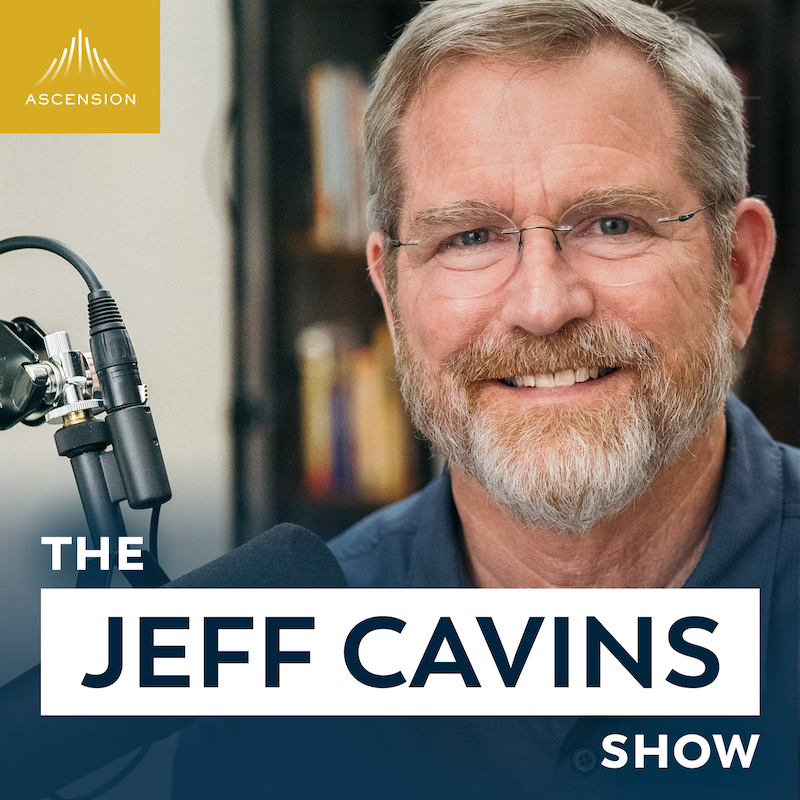Do you tend to cruise through Ordinary Time during the Church’s liturgical year? Jeff reminds us that Ordinary Time can truly be an extraordinary time in our lives if we fully embrace the liturgical calendar and its purpose. By understanding the deeper meaning behind the liturgical calendar, we come to understand that Ordinary Time can be incredibly fruitful in our discipleship with Christ if we use it well.
Shownotes
“
“Ordinary Time is called ordinary not because it is not special or less significant”
Shownotes
“
Eph 5:15-17 – “Be careful then how you live, not as unwise people but as wise, making the most of the time, because the days are evil. So do not be foolish, but understand what the will of the Lord is.”
Biblical Roots of the Liturgical Calendar
In the Old Testament, the Israelities celebrated feasts and holy days to enter into the presence of God. These feasts followed an agricultural theme, and they captured the acts of God in the life of Israel. There were seven main feasts commanded by God in Leviticus 23; Passover, Unleavened Bread, First Fruits, Pentecost, Trumpets, Day of Atonement, and Booths (or Tabernacles). These feasts are still observed by the Jewish people today.
In the new covenant era, Christians also remember the saving actions of God in the life of Jesus. The Catholic Church in her wisdom has developed the liturgical calendar so that you can live out the life of Christ in your own life. There is a certain logic to the calendar, it is broken up into seasons which guide us through Christ’s life.
The Liturgical Seasons
- Advent – Preparing for the coming of Christ the King
- Christmas – Celebrating the birth of Christ
- Ordinary Time – Learning the teachings of Christ and working to build up the Kingdom
- Lent – Preparing for Christ’s Passion.
- Easter – Entering into the Resurrection of Christ
- Ordinary Time (Again… it’s that important!)
The Cycle of Readings
The liturgical year is described in the lectionary which is a cycle of readings. The lectionary is so extensive that over a three-year cycle nearly the entire New Testament and the most significant portions of the Old Testament are covered.
- Cycle A – Matthew
- Cycle B – Mark
- Cycle C – Luke
- The Gospel of John is used in all three, especially during Cycle A in Lent
Ordinary Time
In Ordinary Time, we learn the teachings of Christ and work to build up the Kingdom of God!
- Ordinary Time begins on Monday after the Sunday following January 6th, and continues until Tuesday before Ash Wednesday. It begins on the Monday after Pentecost and ends before evening prayer of the First Sunday of Advent.
- Ordinary Time is called “ordinary” not because it is not special or less significant but simply because the weeks of Ordinary Time are numbered. The Latin word ordinalis, which refers to numbers in a series, stems from the Latin word ordo, from which we get the English word order. Thus, the numbered weeks of Ordinary Time, in fact, represent the ordered life of the Church—the period in which we live our lives neither in feasting (as in the Christmas and Easter seasons) or in more severe penance (as in Advent and Lent).
- The goal of Ordinary Time is to order our life to Christ’s. For a disciple, ordinary time is extraordinary time.
- “The shape of your day is reflect by the love of your life”- Jeff Cavins
Add the Liturgical Calendar to your Calendar:
- Download a Catholic Liturgical Calendar App (One option: https://catholicapptitude.org/apps/catholic-calendar-apps/)
- Go into Google Calendar settings
- Add Calendar
- Rename “Jesus Calendar”
Resources
- Email us at tjcs@ascensionpress.com
- Text “jeffcavins” to 33-777 to subscribe and get added to Jeff’s shownotes email list!
- The Activated Disciple by Jeff Cavins
- The Great Adventure Catholic Bible
- Fulfilled: Uncovering the Biblical Foundations of Catholicism
- Ascension is pleased that our Catholic Community is starting to come Together Again — at our parishes, with Jesus in the Eucharist, or in small group settings where you can share and live in Christ. We invite you to explore our many resources and programs to help us all come together again

Meet Your Host: Jeff Cavins
Jeff Cavins is passionate about helping people understand Scripture and become disciples of Jesus Christ. Though he was born Catholic, Jeff went to Bible school and served as a protestant minister for twelve years before reverting to the Catholic Faith. Jeff then received his MA in Theology from Franciscan University of Steubenville. Since then, he has become a leading Catholic evangelist and author.
Jeff created The Bible Timeline learning system, which revolutionized Catholic Bible Study for millions of Catholics. Since its introduction, Jeff has developed The Great Adventure series of Bible studies to help people better understand Sacred Scripture and its meaning for their lives.





